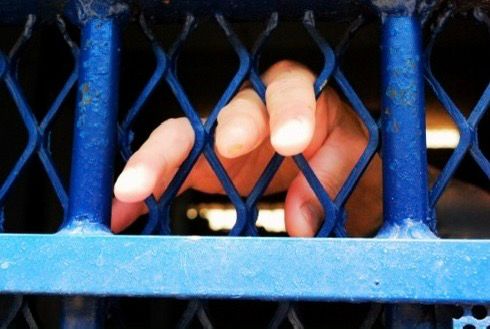A national body has revealed that torture is systematically practiced in prisons, hospitals and juvenile detention centers in São Paulo
On the eve of the 32nd anniversary of the Carandiru Massacre, a report from the National Mechanism for the Prevention and Combat of Torture warns of human rights violations in institutions in São Paulo

Systematic practices of torture in prisons—such as beatings and the excessive use of less-lethal weapons—along with psychological violence and routine confinement in mental health institutions and juvenile detention centers, are recurrent in the state of São Paulo. These conclusions were revealed in an inspection report by the National Mechanism for the Prevention and Combat of Torture (MNPCT), released this Tuesday (1), on the eve of the 32nd anniversary of the Carandiru Massacre.
These and other human rights violations were identified during inspections carried out in six prison units, two juvenile detention centers, and three mental health facilities. The MNPCT visits took place in October 2023, covering seven municipalities in São Paulo state and resulted in a 400-page report, which made 231 recommendations for the prison system, 63 for the juvenile justice system, and 47 for mental health policy.
Among the most serious practices, the National Mechanism highlights the existence of dark and unsanitary cells in Venceslau I Penitentiary. Additionally, the Rapid Intervention Group (GIR), responsible for procedures in units under the differentiated disciplinary regime, such as Venceslau II Penitentiary, operates without any objective of rehabilitation.
Read more
At the Tupi Paulista Women’s Penitentiary and the Franco da Rocha Detention Center, inspections revealed a lack of material and healthcare assistance, as well as instances of moral violence against pregnant women and mothers with babies, who are imprisoned in degrading conditions.
In the juvenile justice system, the inspections identified poor conditions, a lack of appropriate educational activities, and the use of punitive methods that may amount to institutional bullying, in addition to the inappropriate presence of male care workers in female units. The visits were conducted at Fundação Casa Chiquinha Gonzaga and Fundação Casa São Paulo, both in the capital of São Paulo.
In the field of mental health, the report denounces the illegal confinement of individuals in institutions such as the Experimental Health Unit (UES) in São Paulo (SP), which operates as a cross between an asylum and a prison. The Long-Term Care Service for Alcohol and Drugs (SCP-AD), also in the capital, operates outside the Psychosocial Care Network, focusing on deprivation of liberty and forced abstinence.
Recommendations for São Paulo
Among the main recommendations, the MNPCT suggests increasing the budget for the maintenance of prison units and ensuring the rights of incarcerated individuals, prohibiting strip searches, and making the use of body cameras mandatory during police interventions. For juvenile detention centers, enforcement of Resolution 225/2021 is recommended. This prohibits girls being held in custody by male staff. Also recommended is the introduction of more socialization activities.
In terms of mental health facilities, the Mechanism recommends the immediate closure of the UES and SCP-AD, along with the adoption of a deinstitutionalization plan.
The report was submitted to state and federal authorities, who now face the challenge of implementing the urgent changes recommended by the MNPCT in order to address the serious human rights violations identified during the inspections.
“We understand that the Carandiru Massacre, which occurred 32 years ago, has not ended. It persists in a covert form, because today people deprived of their freedom in the state of São Paulo continue to die at the hands of the State. Beyond the physical death promoted by the State, which ‘lets them die’ by imposing a ‘sentence of hunger’ or failing to provide medication, we also observe a symbolic death, where the torture inflicted strips these individuals of their dignity and humanity. We believe that authorities must recognize the complexity of the problems created in these spaces, and from there, solutions can be built to overcome this situation,” says Camila Sabino, expert at the National Mechanism for the Prevention and Combat of Torture.
An event in São Paulo presents the findings of the report
The National Mechanism for the Prevention and Combat of Torture, in partnership with the Research and Extension Center on Sentencing and Penal Execution at USP (NPEPEP-USP), is holding the launch of the report on 2 October, a date that marks 32 years since the Carandiru Massacre. The event will take place at USP’s Law School, located at Largo São Francisco. The event will feature thematic panels addressing the main issues covered in the report, bringing together various professionals and activists in the field. Participants will have the opportunity to learn about and discuss the data presented. The full schedule is available on NPEPEP/USP’s Instagram. Check out the complete program through this link.






